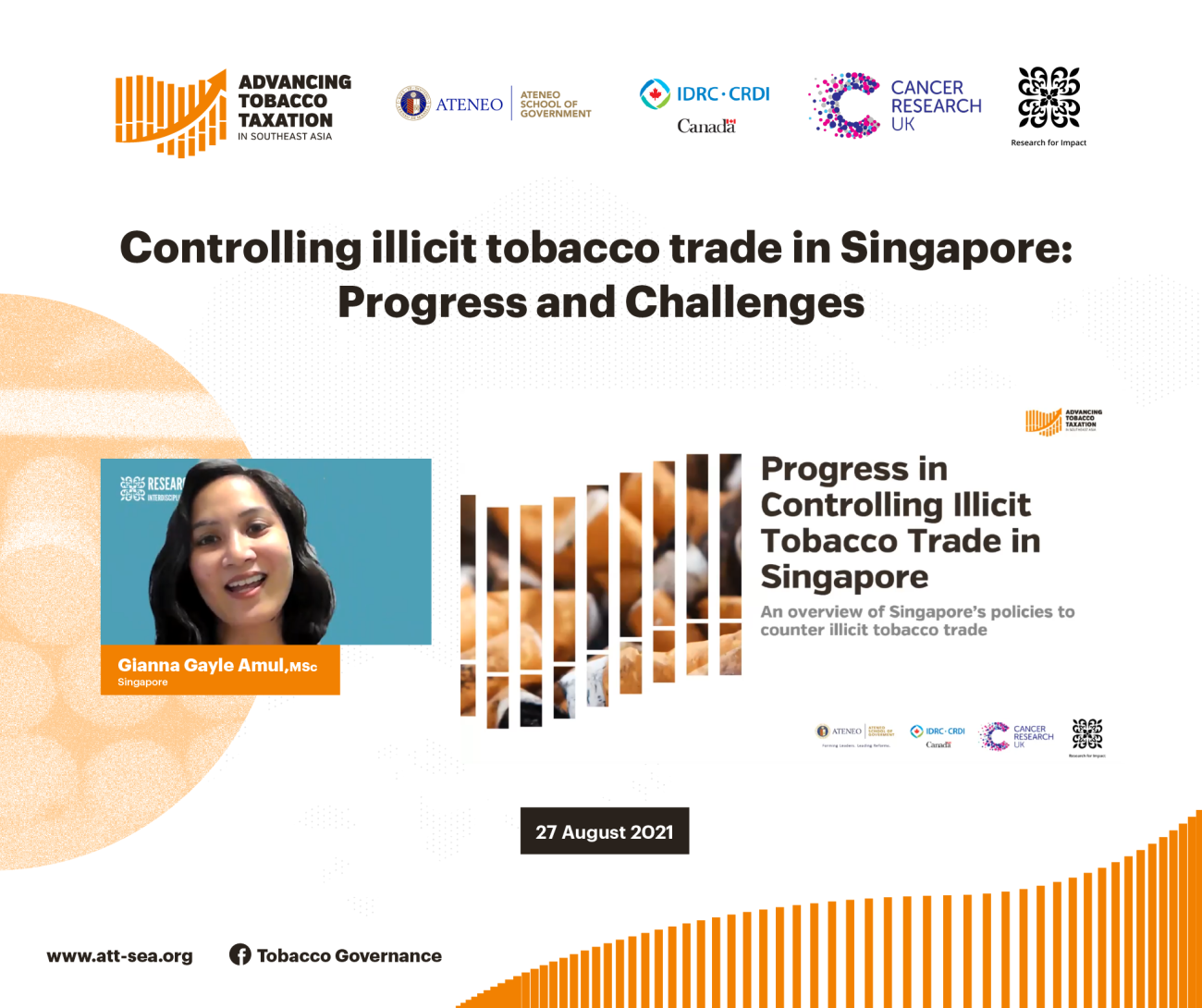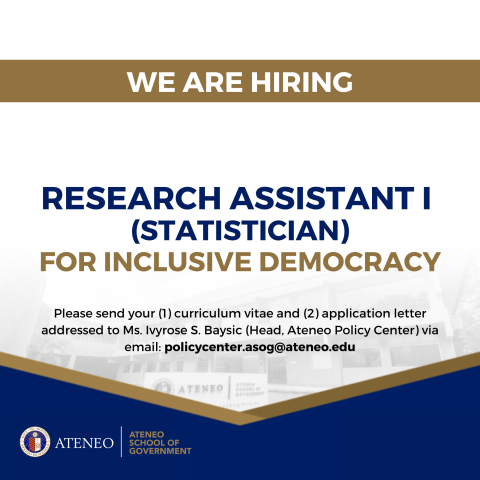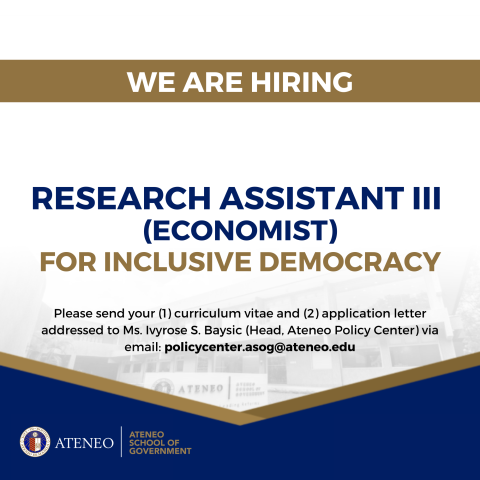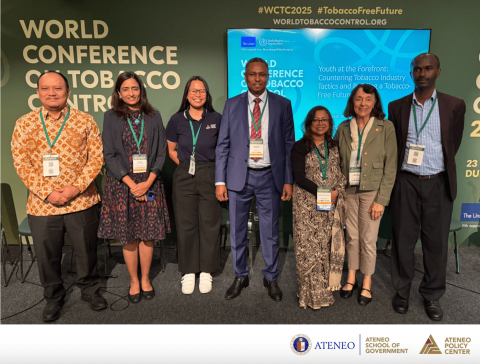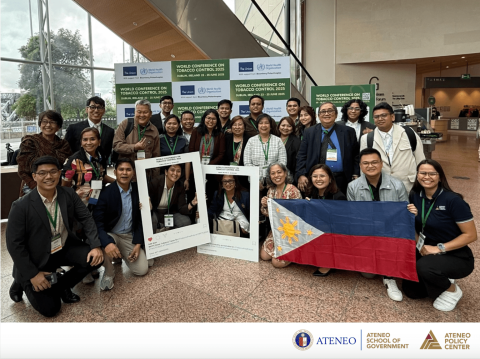ASOG Hosts Policy Discussion on Controlling Illicit Tobacco Trade in Singapore
01 Sep 2021
On August 27, 2021, the Ateneo School of Government, through its project Advancing Tobacco Taxation in Southeast Asia (ATTSEA), hosted the third in its series of webinars entitled “Controlling Illicit Tobacco Trade In Singapore: Progress and Challenges” featuring research presentations led by its Singapore-based research fellow, Gianna Gayle Amul. Various stakeholders attended the event, including representatives from Singapore’s Ministries of Health and Finance, as well as allies from the Southeast Asian Tobacco Control Alliance (SEATCA) and Research for Impact (RFI). The ATTSEA initiative is a project receiving financial support from International Development Research Centre (IDRC) - Canada and Cancer Research UK.
Singapore has one of the strictest environments in terms of tobacco control in the ASEAN region, but has not yet ratified the contents of the Protocol to Eliminate Illicit Trade in Tobacco Products (ITP). Moreover, the country’s free trade zones were identified by the World Health Organization (WHO) as places where illicit tobacco trade occurs. It has also been identified as part of an organized illicit trade route in East Asia and the Pacific. The presence of an illicit tobacco trade market in the country due to taxes is repeatedly referenced by the tobacco industry in their efforts to curb increasing tobacco taxation. However, the increase in Singapore’s revenue from tobacco tax in the past decade disproves this relationship and helps keep its efforts to reduce smoking prevalence in its population on the right track with how it benefits both public health and economic objectives.
To supplement efforts to better improve that comprehensive approach, Ms. Amul reviewed the current policies within the country that deals with illicit tobacco trade. Each policy’s general objectives and what particular part of illicit trade were tackled and taken into account. After describing the country’s whole-of-government approach to the problem, it was pointed out what aspects of it were particularly strong or weak. It was also pointed out that Singapore has a very strong licensing regime as opposed to its tracking and tracing regime, which needs improvements.
The next part of the presentation discussed the challenges that were evaluated via documents submitted to a public consultation for standardized packaging conducted by the Ministry of Health back in 2018. Among the 88 entries, 9 were identified to be supportive of the endeavor, while 79 of them were in opposition. To prepare for challenges that future illicit tobacco policies might face under the same kind of opposition, the opposing stakeholders were profiled according to country of origin, stakeholder group relationships, and arguments used against standardized packaging. From those results, Ms. Amul concluded that there are four main challenges that Singapore will face in controlling illicit tobacco trade. These challenges are:
● Claims about standardized packaging contributing to illicit trade
● Cooperation with allies to counter tobacco industry arguments
● Produce own statistics instead of relying on industry-generated data; and
● Stricter implementation of current policies and eventual ratification of the ITP
Stakeholders present in the webinar commended Ms. Amul for her well-written paper on the topic. Furthermore, they expressed intent to learn more about the policies for better implementation and willingness to have discussions on what to do in the future. Among the identified next steps were studying the intermingling within the free trade zones of the country, implementing a tracking and tracing system to better monitor illicit tobacco trade, and fostering further collaboration between research and policy-generating stakeholders. At the end of the webinar, stakeholders reaffirmed commitment to further engage with one another such that collaborative efforts and policy dialogues can better help translate the evidence presented to support reform in improving the illicit tobacco trade situation.
To learn more about the research and its findings, visit www.att-sea.org. For updates on ATTSEA project, like and visit the official Facebook Page: www.facebook.com/tobaccogovernance
